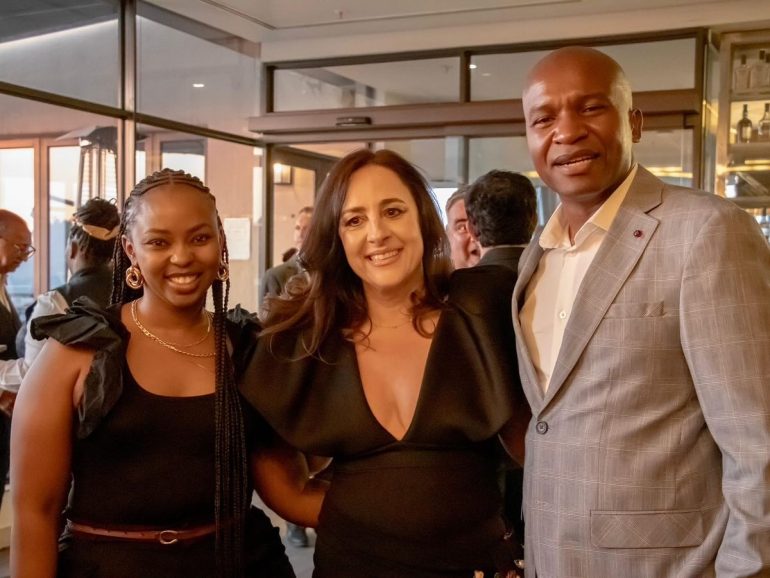- home Home
- keyboard_arrow_right PRESS OFFICE
- keyboard_arrow_right Posts
- keyboard_arrow_rightRamaphosa – between the politics and the administrative
Ramaphosa – between the politics and the administrative
By Khaya Sithole
Just over 50 weeks ago in Nasrec, Cyril Ramaphosa finally achieved his long-held ambition to be the President of the African National Congress. As we watched him ascend to the stage and then shedding a tear, there was a clear impression that a journey whose genesis started long before our time had finally delivered the grand prize. A journey that had traversed the trenches of the trade union movement and the marbled corridors of corporate power with equal conviction; had finally delivered the ultimate personal accolade. Unfortunately, at that same moment, we were reminded just why the Ramaphosa ascendancy had been so truncated by history, complications and circumstance. As DD Mabuza made his way to the stage in his new position as the Deputy President of the ANC, it appeared the political gods were not yet done with handing Ramaphosa a mixed bag of cards. By the time Ace Magashule and Jessie Duarte completed the ‘New Dawn’ line-up; we finally realised that the conference that had delivered the ultimate personal victory; had come hand-in-hand with a major political headache for Ramaphosa. How was he ever going to manage a team whose paths to Nasrec had been so wildly divergent; do deeply polarised; and so blatantly divided?
The question was important as the expectation was that – long before the 2019 general election would present him to the electorate – Ramaphosa would have to deal with the elephant in the room. This was simply the question of whether the ANC could ever function with one man as the head of the party and another as the head of state. And – as expected – the answer was a resounding no. Consequently, the head of state – Jacob Zuma – was duly dispatched into what ought to have been the political wilderness (more on that later).
Long before Nasrec happened, Ramaphosa had found himself ingrained into the architecture of a party that struggled to distinguish between the political and the administrative – so they botched both. In the political front; never before had the divisions in the party been so explicit; so toxic and so deadly. As the body count of political killings mounted in the green fields of Kwa-Zulu Natal in particular; there was an even larger body count in the civil service. As the administration presided over the paralysis in the civil service that was characterised by the financial collapse of the public enterprises in particular; the country found itself regressing economically and the public service witnessed a growing gap in expectations and delivery.
Ramaphosa’s inheritance was thus a broken political consensus within the ANC and a collapsing administration that showcased the ANC government’s inability to manage governance. His problem with the political inheritance is that for a long time, he was just as surprised as all of us that the Top 6 ended up composed of its current incumbents. With an eye on maintaining a façade of unity ahead of a general election; his capacity to take radical political decisions did not exist at Nasrec; and doesn’t exist today. The only political drawcard he had in his arsenal was not even his own but rather an NEC card. As the NEC is made up of politicians all with a desire to be on the winning side in 2019; the one thing that united them was a question of whether any member of the party could potentially undermine the 2019 mission. As it turned out; the NEC took the view that such a liability did exist in the form of Jacob Zuma and thus he was duly dispatched. Had the NEC been of an alternative persuasion, Ramaphosa would have had no room to play with.
The Thabo Mbeki approach to a recall made many believe that Zuma’s exit from the presidency would lead to his disappearance from the public arena. Had this happened, the NEC’s quest to distance themselves from his public profile would have delivered materialised. However, Zuma seems to have failed to read the script and has – at various times since his exile from the Presidency – participated in public events where his enduring popularity was reinforced.
On the administrative side, Ramaphosa’s great fortune – no pun intended – is that whist the Zuma administration focused on the political wars they also dragged key pillars of the public service into the fold of chaos. This meant that even if Ramaphosa could not get the political configuration he wanted; this did not stop him from making the right interventions in the administrative side. His first big move – removing the alliance of the compromised masquerading as the board of Eskom – happened even before his elevation into the presidency of the country. Whilst it was procedurally flawed – as Matshela Koko’s victory in the Labour Court showed us – it sent the right note to the nation.
Since then, Ramaphosa has embarked on a clean-up exercise that has brought a new board at Eskom, Transnet; Denel for example. These 3 entities in particular, were at the epicentre of the state capture phenomenon. Another compromised institution – the South African Revenue Service – has proved to be more difficult to clean up. This is simply because the SARS administration head – Tom Moyane – occasionally mistakes himself for a politician who can go toe to toe with the President. To that end, the President has had to find a way to entertain Moyane’s faux-politicking whilst still keeping him away from the administration. This week, as Daniel Matjila finally left the PIC, you had to acknowledge that whether he intended it or not; Ramaphosa has managed to purge the country of the many figures who were central players in the Zuma administration. Some might eventually be found guilty and some innocent. Not that it matters much these days. The fact that they presided over institutions where governance and politics clashed so frequently, means that the clean-up process can only usher in a new era of accountability in the civil service.
And given our fractured political consensus as a country, perhaps all that matters to us is how the public service is fixed for the benefit of us all. To that end, one has to agree Ramaphosa has done as much as he could practically do since February. Whether he can replicate his achievements on the political front is the big national question of 2019.
Khaya Sithole is Kaya 959’s resident political analyst.
Written by: Kayafm Digital
Similar posts
MORE ARTICLES

WATCH: American Artist, Lisa Shaw in SA for the Italian Elegant Xperience and working on a new album

The Kaya Countdown powered by Ackermans

Akon City project reportedly scrapped by Senegalese authorities

State to add more charges in Vusimuzi ‘Cat’ Matlala’s case

Temu launches first warehouse in South Africa
QUICK LINKS
UpComing Shows

The Hive
With Bonolo "Bee Sting" Molosiwa
Every "Hive" needs a Queen B and Bonolo "Bee Sting" Molosiwa is Kaya 959's honey who brings in the money. With her bubbly personality, infectious laugh, Bee Sting radiates positive energy which is all you need to get your weekend off to the best start. Don't miss the Afrobeat Dancehall Ragga (ADR) Top 10 on The Hive with Bee Sting every Saturday from 18h00 - 21h00.
close
The Hive
With Bonolo "Bee Sting" Molosiwa
Every "Hive" needs a Queen B and Bonolo "Bee Sting" Molosiwa is Kaya 959's honey who brings in the money. With her bubbly personality, infectious laugh, Bee Sting radiates positive energy which is all you need to get your weekend off to the best start. Don't miss the Afrobeat Dancehall Ragga (ADR) Top 10 on The Hive with Bee Sting every Saturday from 18h00 - 21h00.
close
Tune and Chill
with Tyroline Franks
Tune and Chill with Tyroline Franks on Kaya 959. Weekends, Saturday and Sunday, 15pm-18pm.
close
On the Beat
On the Beat with George Manyosi on Kaya 959. Saturday's, 18pm-21pm.
closeConnect with Kaya 959
DownLoad Our Mobile App
© 2025 Kaya 959 | On The Street On The Air









